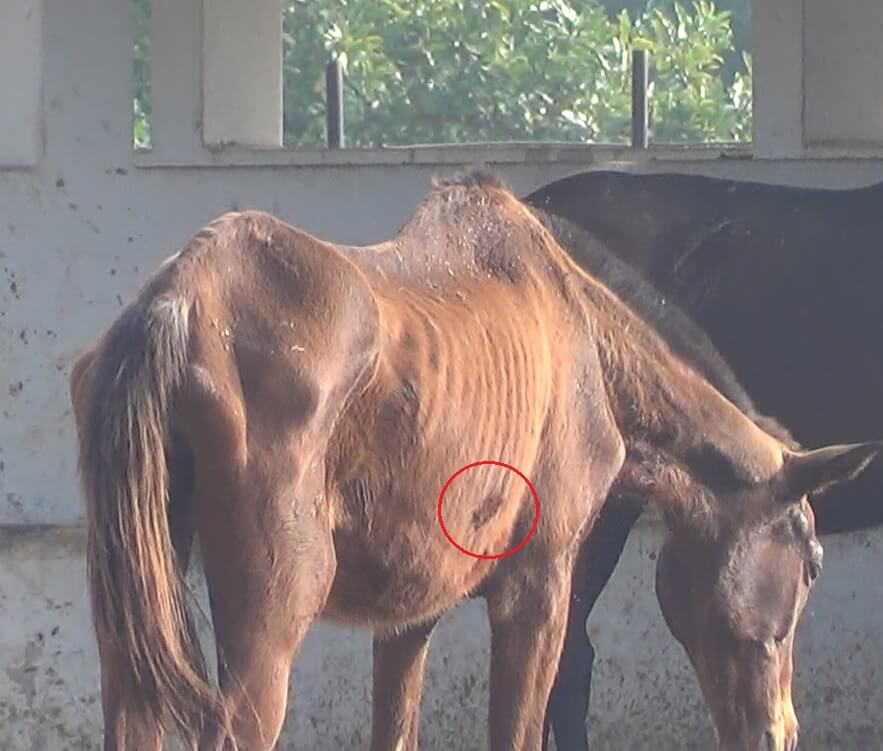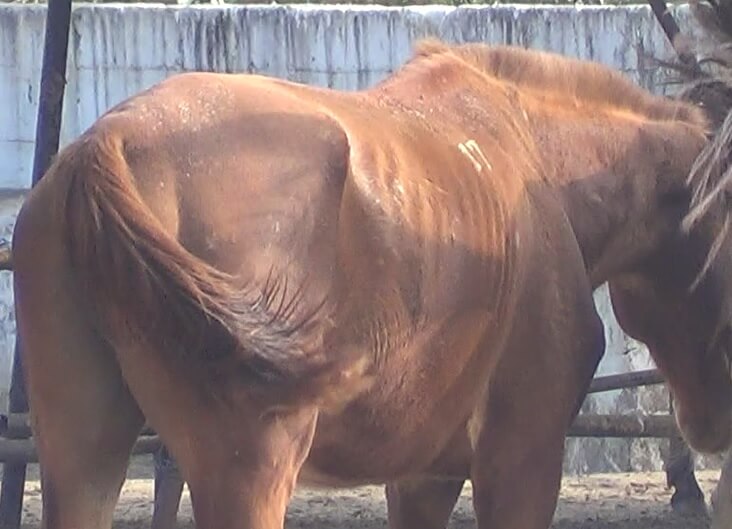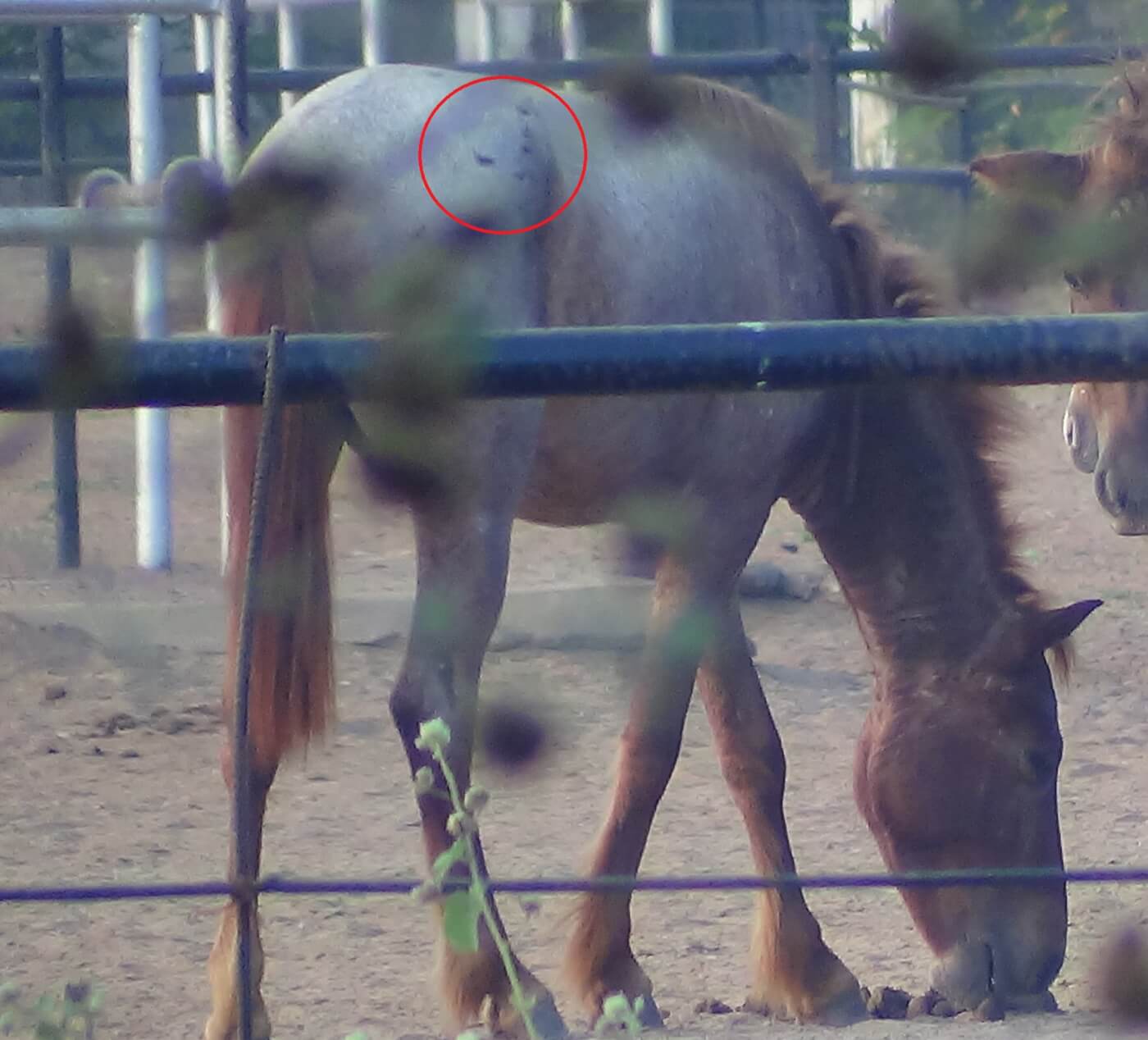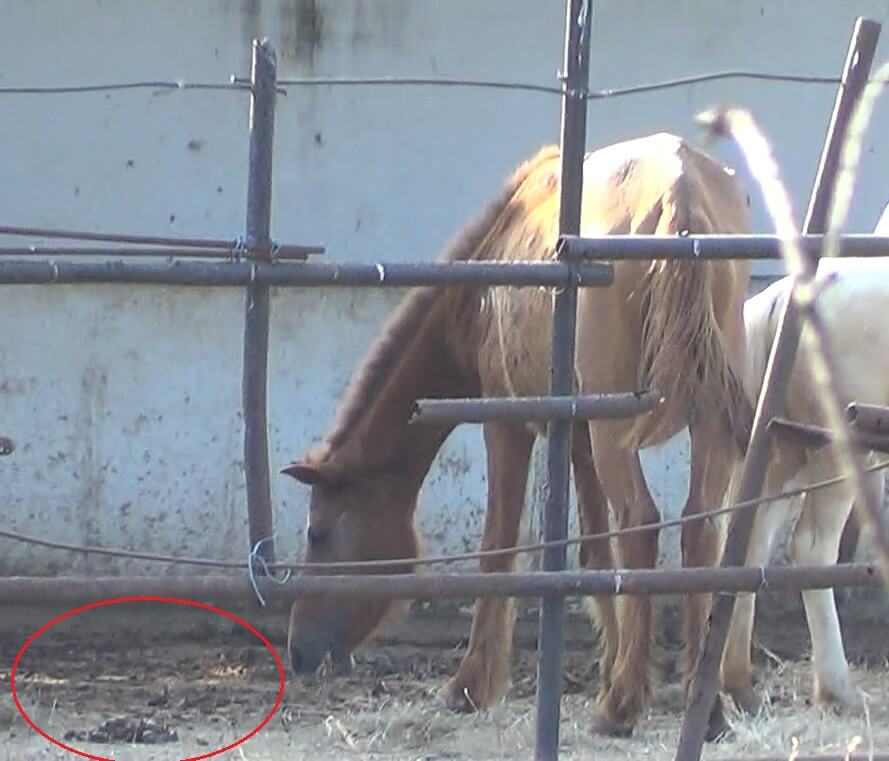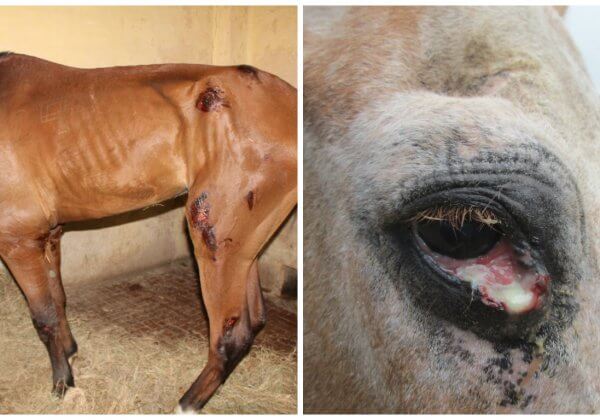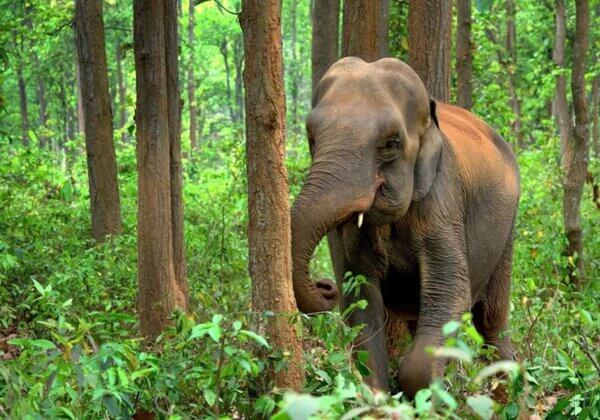Horses Still Suffering After Suspension of Mediclone Biotech’s Licence
PETA India is urging the Ministry of Environment, Forest and Climate Change to seize the horses and other equines who were previously used to produce antitoxins at Mediclone Biotech, and send them to a rehabilitation centre. Although the Committee for the Purpose of Control and Supervision of Experiments on Animals suspended Mediclone’s experimentation licence in March 2017 – in a delayed response to the Animal Welfare Board of India’s (AWBI) inspections showing that horses were abused for their blood at Mediclone and other facilities that make antitoxins and/or antivenins – the suspension hasn’t stopped animals from suffering at the company’s hands.
When PETA India’s eyewitness inspected the company’s private farm, Equine Paradise, in Chennai, we found animals suffering from skin diseases, body lesions, bleeding wounds, malnourishment, and other ailments. Some were seen eating their own faeces.
Our eyewitness also observed that equines are kept in an open-barn system that included a sheltered area with open paddocks. It was devoid of any bedding; the animals were forced to stand or lie on hard concrete floor. All the metal pipes used for fencing in the paddocks were rusted and sharp-edged. The facility was littered with horse dung and bones.
CPCSEA guidelines include comprehensive instructions for all the equines facilities to ensure adequate and hygienic housing conditions. The latest PETA India’s investigation indicates that these guidelines are still not being followed by MBPL, even after CPCSEA’s suspension and instruction to MBPL to improve the conditions at the facility.
PETA India is now asking authorities to rescue and rehabilitate these horses and other equines who are abused by antitoxin producers in India and to permanently cancel Mediclone’s experimentation licence.
And in order to prevent thousands of horses from being used to produce antitoxins and antivenins, the PETA International Science Consortium, Ltd, is funding ground-breaking research to produce non–animal derived antitoxins for diphtheria, a serious illness that can cause difficulty breathing and severe damage to the kidneys, nervous system, and heart.
You can help horses suffering for drug production.


